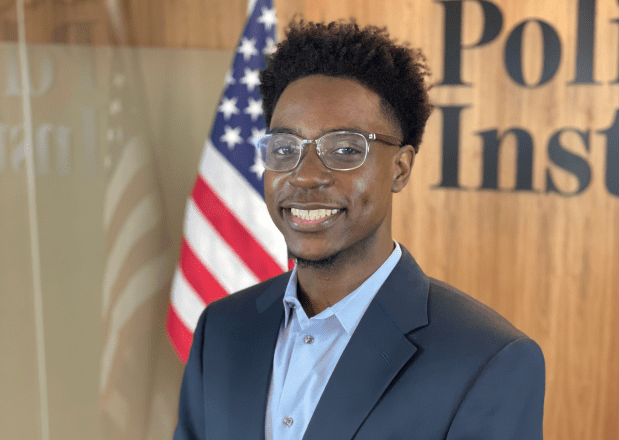By Adewale A. Maye
In the wake of the decision to overturn Roe V. Wade, the Supreme Court is once again at the forefront of repealing sweeping legislative precedent that will change the lives of millions of Americans. Following arguments from Harvard University and the University of North Carolina on whether race-conscious admission programs are lawful, the Supreme Court is expected to overturn affirmative action in college admissions later this year.
Later this month, the Supreme Court will also hear arguments over President Biden’s student loan debt relief plan that would forgive at least $10,000, and up to $20,000, for tens of millions of federal student loan borrowers. The Supreme Court will likely strike down the plan.
Both affirmative action and student loan debt forgiveness are critical measures for college access and completion for students of color. Sadly, these statutes, along with many others, have been targeted and threatened within the courts over the years—leaving students of color to bear more acute barriers to higher education and more disparate socioeconomic outcomes.
Despite the United States being over half a century removed from the Brown v. Board of Education decision outlawing segregation, the legality of affirmative action to broaden integration and diversity in colleges has consistently been a topic of dispute. In 1978, the Supreme Court upheld the use of race as one factor in choosing among qualified applicants for admission in the Regents of the University of California v. Bakke ruling. In the several decades that followed, public and private universities have considered race and ethnicity as one of the many factors in admissions, but not without concerted efforts to roll back race-conscious admissions programs on the state level.

In 1996, California banned affirmative action in public universities, and now, seven additional states—Arizona, Florida, Michigan, Nebraska, New Hampshire, Oklahoma, and Washington, have followed. Consequently, college enrollment for racial and ethnic groups has decreased at selective universities and graduate programs. One study estimated that students of color experience a 23% decline in admissions to highly selective public colleges after an affirmative action ban.
While numerous studies have indicated state bans on affirmative action significantly hinder college diversity and hurt students of color the most, many policymakers believe race-neutral policy is key to avoiding further discrimination. These policymakers are wrong. Instead, race-neutral policy simply maintains longstanding inequities and operates within the parameters of existing inequality.
Many arguments against race-conscious decision-making negate the systemic and structural hurdles for students of color. For example, although college enrollment and completion rates over the past few decades have increased, Black and Latino students are more underrepresented at top universities than they were 35 years ago.
In many states, Black enrollment at flagship universities lags significantly behind the share of Black students completing high school. Overall, the percentage of adults age 25 and older who had completed high school increased for all race and Hispanic origin groups from 2011 to 2021. This included an increase from 84.5% to 90.3% for the Black population.
Despite gains in high school completion, Black and Latino students continue to see double-digit differences in college completion compared with white and Asian graduates. In 2021, the percentage of adults age 25 and older with at least a bachelor’s degree was 20.6% for Latino people, 28.1% for Black people, 41.9% for white people, and 61% for Asian people.
While students of color face structural hurdles to attending top universities, they are also more likely to face financial barriers to completing their degree. Compounding these pressures, the growing cost of college tuition and the crushing implications of student loan debt present intersectional implications for students of color.
While more than 44 million borrowers are struggling with student loan debt, Black college students are far more likely to take out federal student loans and owe an overall average of $25,000 more in student loan debt than white college graduates.
The outstanding debt for Black students is also reinforcing the racial wealth gap. With less family wealth, Black and Latino students borrow more to fund college while taking longer to repay.
Women, especially Black women, bear the brunt of the student debt crisis, with American women holding $1.7 trillion in student debt. Black women had the largest average student loan debt at $41,466 in 2021, reports The American Association of University Women (AAUW), while Asian women owed the lowest amounts at $27,606.
Canceling student debt is as much a gender issue as it is a racial justice issue, and it is pivotal to address the intersectional inequalities these groups experience.
As the Supreme Court prepares to hear arguments on President Biden’s student loan debt cancellation plan, Black and brown students, borrowers, and families hold their breath as they prepare for another blow to their access to higher education.
Communities of color would face widening gaps in college access and be further entrenched in a cycle of economic inequality if the Court rules against both.
Race-neutral policy will always fail to reverse the gaps and barriers of structural racism.
Racial equity and racial justice must center the lived experience of systematically excluded communities and bear in mind the policies, programs, and institutions that continue to intentionally disempower these communities to this day. Policymakers and the U.S. judicial system have a responsibility to redress the attacks on equal access to higher education and create broader pathways to higher education and economic prosperity.
Adewale A. Maye is a policy and research analyst with the Economic Policy Institute’s Program on Race, Ethnicity, and the Economy. He studies the root causes of racial economic inequality in order to advance inclusive and restorative policy solutions that build equity. His research interests are centered at the intersection of labor economics, the political economy, and inequality. Maye holds a B.A. in Economics, University of Maryland, College Park.








